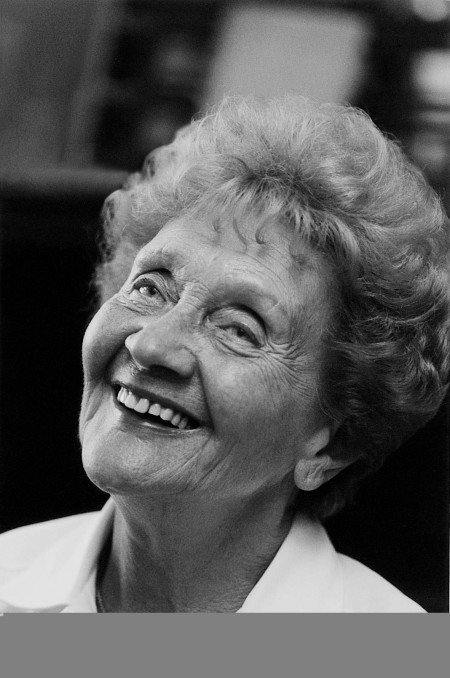
10 October 1923, Budapest – 24 October 2008, Budapest
Success and triumph lasts in the lives of performing artists among them especially singers only until they are on stage and the audience can meet them daily. Following the termination of their artistic careers singers are slowly forgotten by the audience and colleagues, the lucky ones become living legends who do not participate in musical life anymore. Judit Sándor belongs to the rare exceptions. Following her three decade-long successful career as a singer she remained active in music being present at every significant concerts and opera performances, interested in every changes of musical life, concerned about the unfolding of the talents of new generations of musicians. ‘I simply love music, I need music. I do not understand those who disappear following the end of their active careers…. I think they loved only singing not music.' Probably the secret of Judit Sándor shining through all of her performances lies in this kind of approach: the infinite love and respect for Music that she felt was paired with an exceptional musicality and intelligence.
She was born in 1923 in Budapest to a music-loving family. The girl with a nice voice began her studies in the Fodor School of Music with Erzsi Gervay, and then became a student of Ilona Durigo at the Academy of Music in 1941. The artistic and human greatness of Durigo meant a life-long motivation for her: Judit Sándor continued to be interested in the literature of oratorios and songs besides operas with no weariness, to be committed to premiere contemporary works and to own an incredible artistic intensity with the same devotion as her master. Following the death of Durigo she continued her studies with Margit Walter and Dr. Imre Molnár. She earned her degree as a singer artist and teacher in 1948. Besides the Academy of Music she obtained pre-degree certificate at the faculty of arts of the Pázmány Péter University of Sciences at the philosophy, esthetics and art history department. As she later commented: ‘I would have liked to support music with such a background that could provide other perspectives for people.' She sang at several concerts during her years at the Academy already as a result of her versatile interest: she premiered many works of contemporary Hungarian and foreign composers at the Headquarters of the Independent Union of Musicians and illustrated the music history lectures of Bence Szabolcsi. The talented singer was discovered by Klemperer and Aladár Tóth at her final exam of the opera division in 1948 and contracted her with a scholarship at the Opera. She had been an ordinary member of the Opera from 1949 until her retirement in 1978. Her significant performances were connected to the soprano and mezzo-soprano roles of German and Italian operas: she was Cherubino and later Countess in Le Nozze di Figaro, Dorabella in Cosí fan tutte, Donna Elvira in Don Giovanni, Leonora in Fidelio, Octavian in Der Rosenkavalier, Sieglinde and Fricka in the Ring, etc. Her unforgettable performance of the role of Melisande in 1963 gained the highest recognition of the conductor János Ferencsik and Kodály, as well. She was awarded the Liszt Prize in 1953 and Merited Artist Award in 1963.
She played the title roles of several new Hungarian operas: in the C'est la guerre of Petrovics, in the Vérnász (Blood Wedding) of Szokolay, in the Huszti kaland (Adventure at Huszt) of Pál Kadosa, in the Tartuffe of György Kósa and in the musical dramas of Ferenc Farkas. Besides the operas she continued to sing the works of several contemporary composers at her recitals and regularly performed as a soloist of oratorios, as she did not give up her careers as a Lied and oratorio singer. ‘Lied singing is a very nice and painful part of my life as it has not ever had a real past, present and future in Hungary…' Judit Sándor considered the insufficient language skills the most difficult problem of lied singing, as the style of songs depends primarily on the text, the excellent declamation. Following the termination of her performing career the singer is still being a permanent participant of our musical life by her active work as a pedagogue and in public life. In recent years several radio programs, journal articles, commemorations and reports have appeared with the demanding style of Judit Sándor and there can hardly be any voice competitions organized in Hungary or abroad in the jury of which we could not find the singer, who is ‘not only a singer, but a Musician, as well' according to the words of Ferencsik. For her life achievement she was awarded the Bartók Béla–Pásztory Ditta Prize in 1992 and the Kossuth Prize in 1993.
D. Á.


